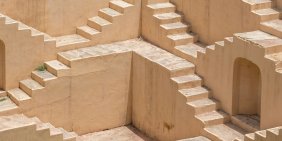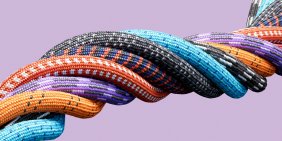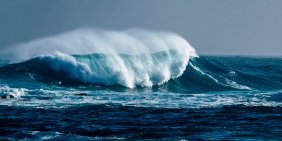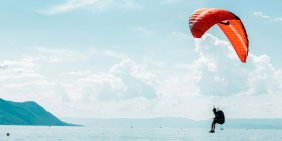
Tō tātou waka, tō tātou huarahi
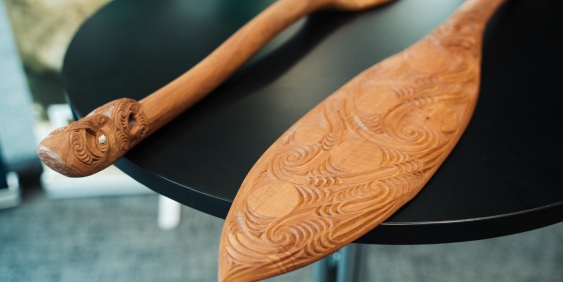
A taonga marks a shared journey in governance, where kaupapa Māori and mainstream leadership move forward together.
Tō tātou waka, tō tātou huarahi translates to "Our canoe, our pathway" – it emphasises a collective journey and the shared responsibility of everyone involved.
A taonga marks a shared journey in governance, where kaupapa Māori and mainstream leadership move forward together.
In the quiet before the formalities began, a waka hoe stood at the front of the room – its twin headpieces carved to reflect two traditions. One represents Western governance, the other te ao Māori.
The taonga was a gift from the Institute of Directors to Te Rūnanga o Whaingaroa, marking their work together on the first Kaupapa Māori Company Directors’ Course, held in Kerikeri earlier this year.
The waka hoe became a symbol of what the partnership had achieved – and what it could continue to shape.
This wasn’t a typical course graduation. It was a chance to come together, reflect on the journey and recognise the connections built along the way.

IoD Chair Ross Buckley CMInstD presents the waka hoe to Bree Davis, CEO at Te Rūnanga o Whaingaroa.
For Ross Buckley CMInstD, Chair of the Institute of Directors, the presentation of the waka hoe was a reminder that governance – done well – is always a shared endeavour.
“Leadership’s not a solo journey,” Buckley said. “It’s about listening, learning and working together with integrity and purpose.”
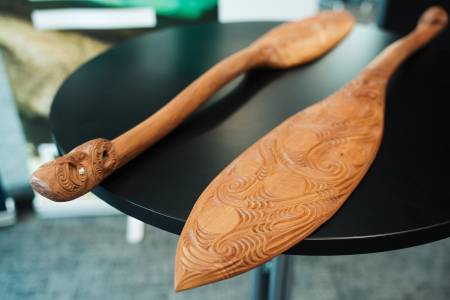
Carved by Kawati Whiremu, the waka hoe is a gift from the Institute of Directors to Te Rūnanga o Whaingaroa.
Carved by Kawati Whiremu, the waka hoe design reflects Papatūānuku and the role of leaders as kaitiaki of Aotearoa. The whakairo (carving) includes a natural ecosystem – from Tāne Mahuta, who cloaked the world in forest, to Te Kaha o te Wai, symbolising resilience and the ability to carry kaupapa forward with strength and adaptability.
Three fingers in the carving represent accountability – for what you say, think and do – and how those actions shape the world around you. As rangatira, this is at the heart of governance.
The waka hoe now stands as a living taonga. One piece will remain with Te Rūnanga o Whaingaroa in Kerikeri. The other will return to the IoD in Te Whanganui-a-Tara Wellington. Together, they form a full picture – reminding both organisations of the journey taken and the commitment still ahead.
For Buckley, the kaupapa aligns with the IoD’s broader mission: to support directors to positively transform the future of Aotearoa.
“When you combine great governance with powerful education,” he said, “you change lives. You build stronger organisations. And ultimately, you uplift communities.”
The moment was not just seen as a celebration, but as a continuation of something bold – a “leap of faith”, as both Buckley and others described it.
For the IoD’s Ewan Heron, Manager – Strategic and Commercial Partnerships, the project began three years earlier in a meeting with Whaingaroa’s Norm McKenzie at Wellington airport.
“That’s where this kōrero started,” Heron said. “And we haven’t stopped talking since.”
As a Glaswegian working in Aotearoa, Heron spoke candidly about what it meant to be part of this kaupapa. “It’s been a privilege to be welcomed into this space and to learn from everyone involved. This wasn’t just about governance training – it was about grounding the experience in wairua, tikanga and kotahitanga.”
Heron praised those who brought the course to life: Dr Jim Mather CFInstD and his facilitation team – Susan Huria CFInstD, Alecia Wright-Chand and Kiriwaitingi Rei-Russell MInstD – and the IoD’s Juanita Hudson CMInstD, whose whakapapa ties gave the kaupapa its cultural depth and authenticity.
“We created something enduring,” Heron said. “A new model of governance. By Māori, for Māori. And transformative for all of us involved.”
He called it the IoD’s next great milestone – a step forward not just for the organisation, but for governance in Aotearoa more broadly.
If Buckley and Heron laid out the structural pillars, it was Bree Davis, Chief Executive of Te Rūnanga o Whaingaroa, who illuminated the personal and organisational transformation this course enabled.
“When we first agreed to do this,” she recalled, “half our board said, ‘Why?’ Right up to the day we started, they were still asking, ‘Why are we doing this?’”
The answer came during five intensive days of wānanga that challenged assumptions, deconstructed financial literacy, explored risk and aligned strategy – all through a kaupapa Māori lens. It wasn’t governance applied to a Māori context. It was governance emerging from it.
“A lot of our whānau come to governance through the marae,” Davis said. “That’s a brutal place to learn. This course created a space to rethink what leadership looks like – and what governance can be.”
Davis also reflected on her own evolution as a leader.
“As a CEO, I used to push things through. Gatekeeping information. But now, the board sees it. They ask more questions. They’re stepping into their governance role. That’s what this course unlocked.”
The change, she said, is already reshaping the rūnanga’s strategic direction as it shifts from crisis response – especially through the Covid-19 era – into long-term, values-based planning.
“We’re now asking: Where are we building homes? Why are we building them there? What’s our kaupapa? That clarity is the result of this course.”
What began as a pilot in Kerikeri is now viewed by many as a model for the rest of the country – a way to ground governance in culture, community and collective intent.
New partnerships with MPI Māori Agribusiness, Ngāi Tahu and the New Zealand Māori Rugby Board are already under way, with plans to support more kaupapa Māori learning opportunities in the years ahead.
“This is about building a waka we can all paddle,” Davis said. “But it also means learning to leave some things behind – habits, assumptions, systems that no longer serve us.”
As Buckley, Heron and Davis all agreed – this is only the beginning.
What was launched in Kerikeri is now a signal to the rest of the country: governance can – and must – reflect the people it serves.

(From left to right): Ross Buckley CMInstD, IoD Chair; Juanita Hudson CMInstD, IoD Professional Development Advisor Team Leader; Rāniera Kaio, Pōuarahi at Te Rūnanga o Whaingaroa; Bree Davis, CEO at Te Rūnanga o Whaingaroa; Dr Jim Mather CFInstD, IoD Facilitator; Ewan Heron, IoD Manager Strategic and Commercial Partnerships.
